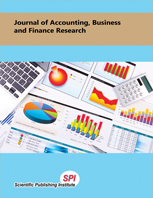International Financial Reporting Standards, Board Governance and Accounting Quality: Preliminary Ghanaian Evidence
DOI:
https://doi.org/10.55217/102.v15i2.528Keywords:
IFRS, Board governance, Accounting quality.Abstract
This paper examines the effect of International Financial Reporting Standards (IFRS) and board governance on accounting quality from a Ghanaian perspective using the ordinary least squares (OLS) technique over a seven-year period (2013–2019). From the results, IFRS adoption is shown to negatively impact accounting quality in an insignificant manner. The insignificant nexus is due to the lax implementation of regulations by institutions regarding IFRS and performance-linked schemes presented to managers. Additionally, all but profitability and institutional ownership have a positive significant impact on accounting quality, while board governance negatively affects accounting quality, though this is not statistically significant. Finally, it was found that board governance does not moderate the relationship between IFRS adoption and accounting quality using discretionary accruals. Our study captured effective corporate governance practices using a composite board governance index to moderate the effect of IFRS on the nexus between board governance and accounting quality, serving as the main motivation and contribution to the existing literature.


